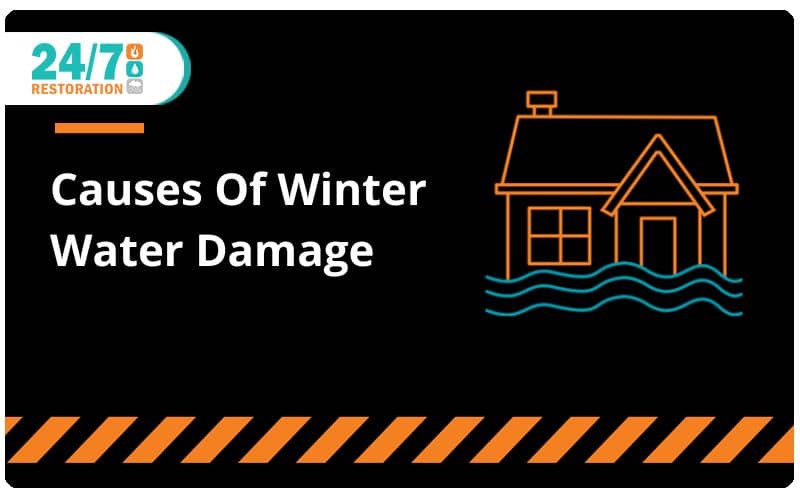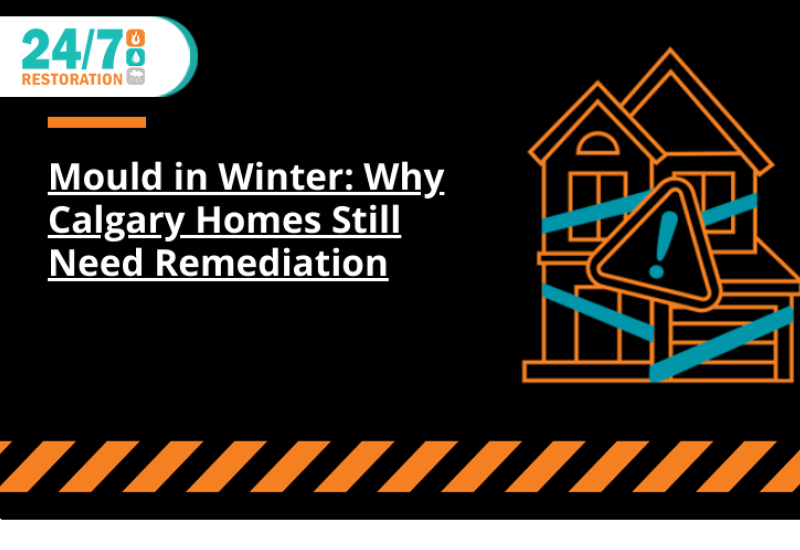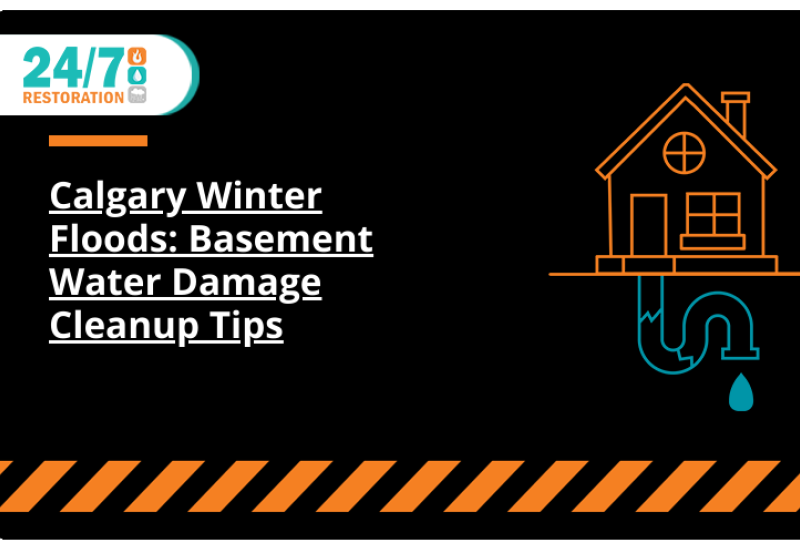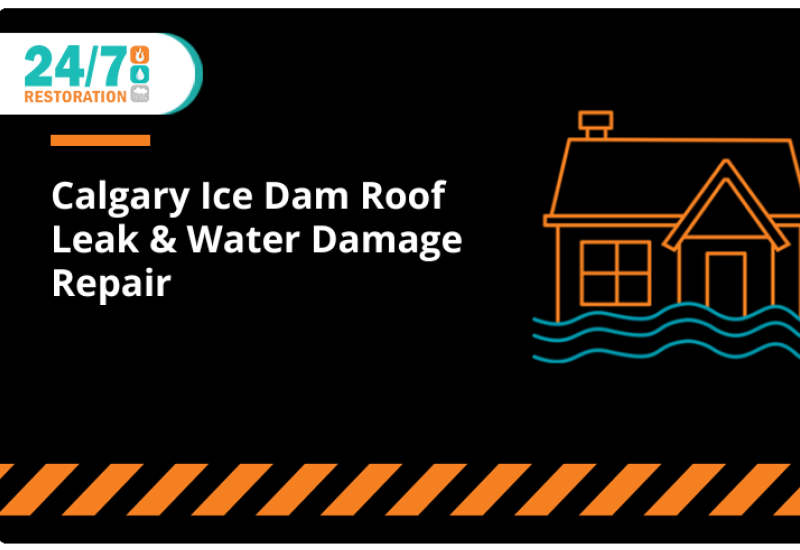Winter Water Damage
Frozen Pipes
In the wintertime, your pipes are most at risk of freezing. Pipes that are near the outside of the house, are buried too close to the surface, or are poorly insulated are all vulnerable. And if your home has a power outage, the chances of pipes freezing increases. Once your pipes freeze, they can burst and cause water damage. When pipes freeze, water pressure builds up behind the frozen section of water and your pipe will burst wherever it is weakest. Meanwhile, the ice in the pipe expands and weakens the section of pipe where it is frozen, making this area more susceptible to pipe bursts later. Water damage from frozen pipes can cause serious destruction and can be very expensive to fix. If your power goes out or if you’re going out of town during the winter, have someone check on your house or turn your water off.
Roof Drainage
Heavy snowfall that accumulates on your roof can ruin your roof and can impact drainage. Buildups of snow and ice can be surprisingly weighty and cause roof collapse, but it’s more common to have water damage caused by heavy snow and ice. Ice dams build up and impact the roof, letting water into your attic as the heat of your house melts the ice. Houses with flat roofs or roofs with low pitch tend to have drainage problems as snow and ice melt due to warming weather or from poor roof insulation, and this can cause water damage to the attic. Clogged, frozen gutters can also contribute to water damage. When thawed snow has nowhere to go, it often runs off the side of the house and pools at the foundation causing water damage. This can erode the earth near the foundation of the home, cause cracks in the concrete foundation of your home, and lead to basement flooding.
Leaking Water Heater
As temperatures drop, water heaters need to work hard to heat up. If your water heater is old or has hard water scale buildup, this puts the water heater at greater risk of malfunction, leaks, or even bursts. If your water heater is making noises, if there are small leaks, or if it is old, have it inspected. Repairing leaks and addressing malfunctions can help you prevent water damage.
Winter Water Damage Restoration
Even when you’re aware of the causes of winter water damage, your home may still experience flooding. If your home has water damage, call 24/7 Restoration. Our restoration experts will mitigate loss and ensure all affected materials are fully removed so that mold does not begin to grow. Once flooding occurs, it is crucial to act quickly to prevent as much destruction as possible. If you need emergency water damage services, call the 24/7 Restoration emergency line at 1-403-247-4365 and we will get you the help you need, anytime day or night. For non-emergencies, contact 24/7 Restoration by filling out the online contact form.
FAQ
Q: Is there any way to guarantee my basement won’t flood?
A: Some preventive steps can help to reduce the risk of flooding and subsequent flood and water damage, but there’s no way to guarantee. Read Prepare Your Home For Spring Thaw for tips to prevent flooding in your home. Having the 24/7 Restoration phone number handy is a great step for preventing flood damage, as the sooner you call, the sooner your home can be fixed.
Q: What causes flooding?
A: Two main types of flooding can occur; flooding from within the home and flooding from outside. Heavy rains, rising river levels, and snow melts (depending on the season) can cause flooding in the streets and this can get into the home through the foundation, through windows, or through overwhelmed pipes that back up. Flooding can also come from within the home such as when pipes are blocked or frozen and the water has nowhere to go. To help prevent damage from within the home, read Common Causes Of Sewer Backup And Fast Fixes.
Q: What do your flood restoration services include?
A: Our flood damage services include:
- Water extraction and removal
- Drying and Dehumidification
- Humidity and airflow control
- Structure Reconstruction and Restoration
- Mold Remediation/Removal




